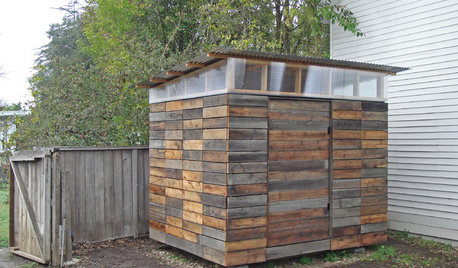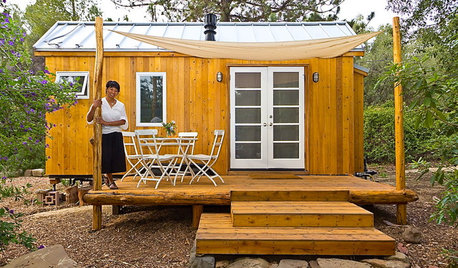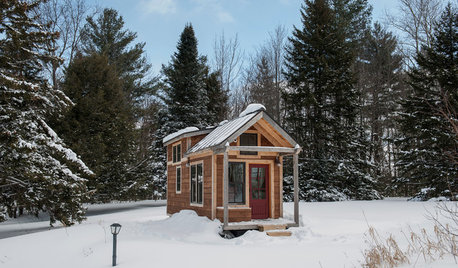Organic lawncare with 20,000 + sf???
thundersweet
16 years ago
Related Stories

SMALL HOMES28 Great Homes Smaller Than 1,000 Square Feet
See how the right layout, furniture and mind-set can lead to comfortable living in any size of home
Full Story
STORAGE2 Weeks + $2,000 = 1 Savvy Storage Shed
This homeowner took backyard storage and modern style into his own hands, building a shed with reclaimed redwood and ingenuity
Full Story
KITCHEN MAKEOVERSSee a Kitchen Refresh for $11,000
Budget materials, some DIY spirit and a little help from a friend turn an impractical kitchen into a waterfront workhorse
Full Story
KITCHEN DESIGNKitchen Remodel Costs: 3 Budgets, 3 Kitchens
What you can expect from a kitchen remodel with a budget from $20,000 to $100,000
Full Story
HOME OFFICESThe 20 Most Popular Home Office Photos of 2015
Technology paves the way for space-saving work areas, while designers make up for small sizes with style
Full Story
LIFE3 Ways to Get Unstuck — About Organizing, Decorating, Whatever
Break out of the do-nothing rut to accomplish your goals, whether at home or in other parts of your life
Full Story
INSIDE HOUZZHow Much Does a Remodel Cost, and How Long Does It Take?
The 2016 Houzz & Home survey asked 120,000 Houzzers about their renovation projects. Here’s what they said
Full Story
MOST POPULARHouzz Tour: Going Off the Grid in 140 Square Feet
WIth $40,000 and a vision of living more simply, a California designer builds her ‘forever’ home — a tiny house on wheels
Full Story
TINY HOUSESHouzz Tour: A Custom-Made Tiny House for Skiing and Hiking
Ethan Waldman quit his job, left his large house and spent $42,000 to build a 200-square-foot home that costs him $100 a month to live in
Full Story
LAUNDRY ROOMSSee an Amazing $400 Laundry Room Remodel for a Family of 8
Budget shopping and DIY spirit create folding space, smart storage and better organization for a couple and their 6 kids
Full StorySponsored
Central Ohio's Trusted Home Remodeler Specializing in Kitchens & Baths






soccer_dad
dchall_san_antonio
Related Professionals
Carlisle Landscape Architects & Landscape Designers · Southfield Landscape Architects & Landscape Designers · Anderson Landscape Contractors · Brunswick Landscape Contractors · Cicero Landscape Contractors · Fair Oaks Landscape Contractors · Fort Hunt Landscape Contractors · Fuquay-Varina Landscape Contractors · Plainview Landscape Contractors · Santa Ana Landscape Contractors · Vermilion Landscape Contractors · Ocala Driveway Installation & Maintenance · Anaheim Driveway Installation & Maintenance · Torrance Fence Contractors · Nipomo Fence ContractorsthundersweetOriginal Author
okcdan
billhill
dchall_san_antonio
thundersweetOriginal Author
aggrand_patriot
dchall_san_antonio
chadm
dchall_san_antonio
chadm